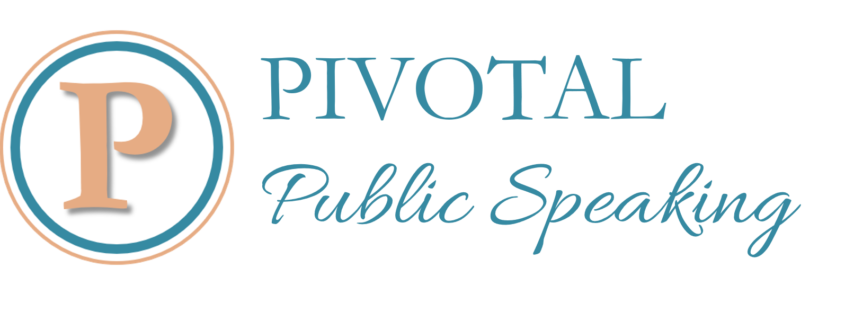The Power Of Using Repetition And Triggers In Your Next Speech
You’ve got great ideas trapped in you. You know the importance of public speaking and you want to use your speaking skills to make your audience’s lives better. The problem is that if you aren’t careful, what you say during your speech will just go in one ear and out the next. How can you make your next speech more “sticky”?
Can You Say That Again & Again?
I must confess that I’m a bit torn when it comes to recommending this particular technique for getting your audience to remember what you’ve told them. For you see, it goes against one of my most cherished beliefs about how to be a successful public speaker.
I’m willing to break my long held belief because of the importance of public speaking – if it’s important than you’ve got to find a way to get your audience to remember what you tell them. One powerful way to do this (I can’t believe that I’m actually recommending this) is to repeat yourself.
I’m sure that we’ve all heard the saying “When giving a speech, you want to tell them what you’re going to tell them, tell them, and then tell them again.” I hate this saying. In today’s environment, audience’s won’t pay attention to you if they think that you are just saying the same things over and over again.
All that being said, it turns out that repetition works. All you have to do is think about some of the TV commercials that we’ve all be exposed to over the years and you’ll be surprised at how quickly you can remember a jingle or a silly catch phrase.
In conclusion, I believe that repetition has its place. You probably don’t want to over use it and you certainly don’t want to end up repeating your entire speech; however, picking the key points that you want your audience to remember and taking the time to repeat them can have a powerful impact.
Don’t Just Say It, Trigger It!
No matter how good of a speaker you are, there’s a really good chance that your audience won’t remember what you’ve told them. What this means for you is that you’ve got to come up with a way for the key points that you made to be recalled by your audience – this is one of the benefits of public speaking.
Clever public speakers use what are called “triggers” to make this happen. A trigger is an association that you plant in your audience’s minds that will cause them to remember the point that you were trying to make. An example of this would be if you were trying to motivate an audience and you wanted them to realize that they had an unlimited potential. You could tell them that the green light on a traffic light represented their unlimited potential and that every time they see a green traffic light they should remember what you told them.
The great thing about triggers is that they can last long after your speech is over. A well done trigger will continue to remind your audience about what you’ve told them for a very long time.
What All Of This Means For You
As a speaker you have two main goals: to provide your audience with clear direction on how to solve problems and to provide them with ways to remember what you’ve told them.
There are many different ways to go about doing this. One such way is simply to repeat your key points more than once. The power of repetition is that it will cause what you’ve told your audience to firmly stick in their minds. Another way to make this happen is to create triggers. Triggers will be associated with your key points and will cause your audience to remember what you said when they encounter the triggers in their everyday lives.
Making and communicating powerful information is what public speakers do. All of the presentation tips in the world won’t help your audience remember what you’ve told them. Even if your audience has the best listening skills in the world, they’ll quickly forget what you’ve told them without some help. Use the two techniques that we’ve discussed and they’ll be able to remember what you’ve told them and, more importantly, apply what you’ve told them in their lives…
……………………………………………………………….
Dr. Jim Anderson
Your Source For Real World Public Speaking Skills?
Do you give speeches today, but want to learn how be more effective? Dr. Jim Anderson believes that great business skills are no substitute for poor presentation skills. Dr. Anderson will share with you the knowledge that he has gained while working to improve the speaking ability of both individuals and teams of speakers for over 20 years. Learn the secrets of effective speakers and really connect with your audience during your next speech.
If you want to follow Dr. Anderson on Twitter, he can be found at:
Tweets by drjimanderson
Discover more from Bronwyn Ritchie - Pivotal Public Speaking
Subscribe to get the latest posts sent to your email.

